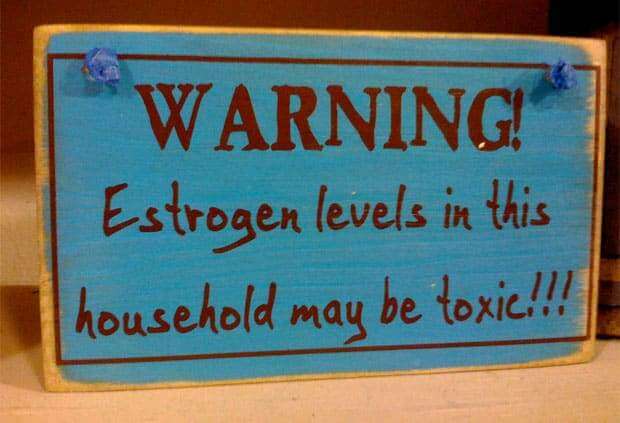Hormonal imbalances can affect your sex drive and affect your reproductive system, causing various symptoms in both men and women. In short, they're no good for your body - and ideally, you want to choose a lubricant that won't affect your natural hormones.
The good news is that most over-the-counter lubricants are completely safe, and there's no direct evidence that water, silicone, or oil-based lubricants can significantly change the way that your body works. However, a few lubricant ingredients may affect hormonal processing, and if you have any hormonal issues, you may want to look for these substances before you buy them.
Phthalates

A class of chemicals commonly used to soften lubricants, phthalates may stimulate hormone and steroid production. Some scientists have hypothesized that Phthalates could cause early puberty, breast cancer, and a host of other issues; thus, U.S. Congress banned phthalates use in children's toys in 2009. Many lubricant manufacturers have stopped using phthalates in recent years.
Phytoestrogens

These plant-derived chemicals may mimic some of estrogen's effects, the main female sex hormone. Some studies have suggested that phytoestrogens could reduce breast cancer risks, and many women use phytoestrogens as a natural alternative to hormone replacement therapy (HRT).
Flaxseed, red clover, and some legumes (including soy) have large amounts of phytoestrogens, and they're sometimes used in lubricant formulas marketed towards menopausal women. However, it is unclear whether these substances mimic estrogen when applied to the skin.
Parabens

There is limited evidence showing that parabens (a common type of preservative) could interfere with how the body processes hormones. A 2002 study published in Food and Chemical Toxicology showed that parabens decreased sperm counts in rats. In recent years, some researchers have suggested a link between parabens and breast cancer.
There is not enough evidence to clearly demonstrate this relationship, but many lubricant companies now offer paraben-free formulas. Common examples of parabens include methylparaben and propylparaben.
Estrogen and Progesterone

Are two of the most important female hormones. They're included in some pharmaceutical products to make up for the drop-off in estrogen after menopause. However, most over-the-counter lubricants will not contain actual hormones - it radically drives up the production costs requires FDA approval if the product is designed to treat menopause symptoms.
Even so, many lubricants will specifically advertise that they're estrogen-free or hormone-free. If you're interested in a lubricant with added hormones, talk to your physician. Unless you're taking actual hormone replacement therapy with estrogen, progesterone, or testosterone, you probably don't have to worry about your lubricant changing your body's hormone levels dramatically.
Other factors, such as stress and overall health, will probably have a more significant effect. However, you can easily find a lubricant that doesn't contain parabens, phthalates, or phytoestrogens. Look for a simple water-based or silicone lube with a limited number of ingredients. Many manufacturers will advertise their products as "paraben-free" or "all-natural," but be sure to check the ingredient list.
Finally, if you notice any signs of a hormonal imbalance - including a diminished sex drive, vaginal dryness, or other biological symptoms - see a physician as soon as possible.












